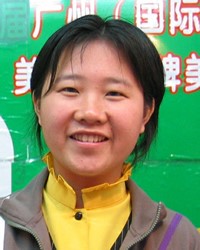Han Chinese, Cantonese in Myanmar (Burma)

Photo Source:
Karolien Taverniers - Flickr
Creative Commons
|
Send Joshua Project a map of this people group.
|
| People Name: | Han Chinese, Cantonese |
| Country: | Myanmar (Burma) |
| 10/40 Window: | Yes |
| Population: | 75,000 |
| World Population: | 80,120,700 |
| Primary Language: | Chinese, Yue |
| Primary Religion: | Buddhism |
| Christian Adherents: | 2.00 % |
| Evangelicals: | 1.30 % |
| Scripture: | Complete Bible |
| Ministry Resources: | Yes |
| Jesus Film: | Yes |
| Audio Recordings: | Yes |
| People Cluster: | Chinese |
| Affinity Bloc: | East Asian Peoples |
| Progress Level: |
|
Identity
Although Han Chinese in Myanmar are called “Tayoke” by the Burmese, the Cantonese have been given an additional nickname “Eingyi” which means “short-sleeved jackets.” This name stems from the clothing style of many early Cantonese immigrants. The term “Cantonese” is a European name applied by early missionaries and merchants, who used the word Canton to describe the large city of Guangzhou. Traditionally, the Cantonese have been known as the Yue people. Although they proudly consider themselves part of the Han Chinese ethnicity, one historian concluded that they were originally members of ethnic minority groups: “The origins of the ancient Yue [Cantonese] people…may have been Tai, but with a sizable Miao-Yao minority in the hills…. The ancient Yue language was definitely not Sinitic. It is estimated that the population of Guangdong was less than 30 percent Sinitic in 1080.”
Location: An estimated 75,000 Cantonese-speaking Han Chinese people live throughout Myanmar today, concentrated in urban areas, including the cities of Yangon, Mandalay, and Pyay Township in the Bago Region. While many have arrived from China in recent decades, others are the descendants of migrants who entered Myanmar over the previous 150 years. The 1931 census of Burma returned 33,890 Cantonese people in the country. Approximately 86 million Cantonese-speaking Chinese are distributed across the globe, making them the second largest Chinese language group after Mandarin speakers. The vast majority (72.8 million) live in southern China, with another 6.8 million in Hong Kong. Most Cantonese live in the south China province of Guangdong, radiating out from the capital city of Guangzhou (also known as Canton).
Language: Cantonese is the second most widely spoken Chinese language in the world after Mandarin. It contains up to nine tones, compared to China's national language, Mandarin, which has only four tones. Although they speak different languages and dialects, all Han Chinese people in China use the same written script.
History
The city of Guangzhou, which has been continuously inhabited for 2,200 years, has always been the center of Cantonese civilization. In the 33rd year of the reign of Emperor Qin Shihuang (214 BC), Nanhai Prefecture was established in today's Guangzhou, and large numbers of Han people flooded into the area. Guangzhou grew to be home to numerous foreign merchants until the Tang emperors lost control of it in 878. The regime change brought chaos, with an Arab traveler reporting that “120,000 Muslims, Jews, Christians, and Zoroastrians were slaughtered in Guangzhou.”
Customs
Many of the early Cantonese settlers in Myanmar were artisans and merchants, followed by fishermen who were able to sail their boats through the Straits of Melaka to the Myanmar coast. The Han in China have a traditional saying that to be happy in this life one must be born in Suzhou, live in Guangzhou, and die at Suzhou. Today, some are still engaged in fishing, while others are small business owners and traders.
Religion
Throughout the Communist Era the Cantonese have continued to be the most openly religious of all Chinese, with many homes having spirit altars as they zealously observe Daoist and Buddhist festivals, infused with ancestor worship rituals. In recent decades, as more people have entered Myanmar from communist China, the percentage of non-religious (atheist) Cantonese people has increased.
Christianity
The 1931 census of Burma found that only 425 (1.3%) of Cantonese people identified as Christians at the time. Things have not improved much since then, and today an estimated two percent of Cantonese people in Myanmar follow Jesus Christ. Early missionaries lamented the almost total lack of work among the Chinese, with a 1917 Baptist book stating: “There are some 120,000 Chinese, but just two regular Methodist workers among them in Yangon. Some Baptist work is sustained by the Rangoon City Mission Society, as much effort as possible through the imperfect channel of the Burmese language.”